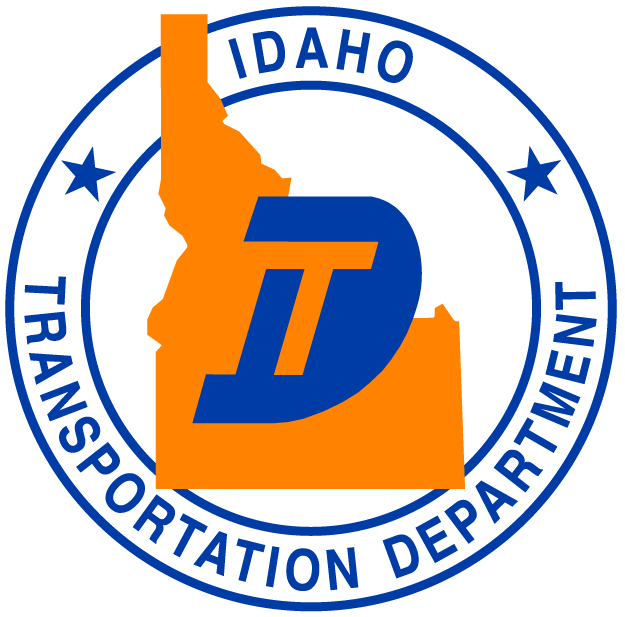Guest Opinion
By: Davalu Cummings of Kootenai County
Our country is being invaded. Even liberal media outlets are reporting historic numbers of people flooding across the southern border into the United States. Various sources estimate between 2.3 million and 6 million illegal aliens have entered the U.S. since the Biden administration took office. These numbers do not include the countless “got-aways.” Add to that the legally admitted aliens who remain in the U.S. after overstaying their visa terms, and the totals are beyond staggering.
This relentless onslaught of illegal aliens brings a variety of people from all over the world: China, Vietnam, Central and South America, Mexico, the Middle East, and Africa. These masses include an alarming number of individuals on the terror watch list, as well as members of violent gangs, various crime syndicates, and cartels. Then there are the unknowns, for which we have no accurate identifying and background information. Some truly come to escape horrific circumstances, but many have nefarious intent and serve as a cancer, metastasizing to every part of the country.
U.S. federal law makes it a criminal offense for an alien to enter or attempt to enter the U.S. in violation of Title 8, United State Code, Section 1325. However, these invaders continue to pour across the border with no end in sight. Who can stop them and why don’t they?
Whether from lack of knowledge or in an attempt to garner votes or political power, local officials and candidates mislead residents into believing that that local agencies have jurisdiction to enforce federal immigration law, but this is not the case. The U.S. Constitution reserves enforcement of immigration laws to the federal government. This means the federal government is the only entity who can lawfully detain and expel from our country someone believed to be illegally present. Unless the feds delegate this authority, state and local law enforcement does not have the jurisdiction to enforcement immigration laws. Our local sheriff and police departments do not even have access to federal databases to determine if someone is potentially illegally present in this country. However, the feds can delegate this authority.
The Illegal Immigration Reform and Immigrant Responsibility Act of 1996 added Section 287(g) to the Immigration and Nationality Act. This section authorizes the delegation of specified immigration officer functions to state and local law enforcement under the oversight and direction of U.S. Immigration and Customs Enforcement (ICE).
In its current watered-down state, the 287(g) program limits designated state and local law enforcement agencies who formally partner with ICE Enforcement and Removal Operations to identify removable incarcerated criminal aliens prior to them being released into the community. The 287(g) program currently has only two models: the jail enforcement model and the warrant service officer program.
The first program empowers state and local law enforcement to identify and process noncitizens with criminal or pending criminal charges. This model is often not effective because judges will release the illegal alien on bond. After release, the illegal alien will simply abscond.
The warrant service model only permits those trained by ICE to serve and execute ICE administrative warrants on noncitizens who are already present in their jails.
Neither of these models allow the interdiction of illegal aliens who are not already in law enforcement custody for another reason. Neither of these programs allows state or local law enforcement to detain or process individuals whose only crime is their illegal entry into the U.S.
Agencies who wish to participate in the 287(g) program must enter into a Memorandum of Agreement (MOA) with ICE and the participating personnel must meet specific qualifications, including a federal background investigation. For state and local jurisdictions who wish to remain independent of federal oversight and intervention, this poses a definite conflict.
According to the ICE website, there are currently only a few agencies from twenty-one states who have 287(g) MOAs in place. Gooding and Power County Sheriff’s Offices are the only agencies in Idaho that appear on the current list. The two Idaho MOAs were executed in 2020 and are for the warrant service model program.
So what can we do about this problem? After all, the Constitution states that the U.S. shall protect each state against invasion (Article IV, Section 4) and acknowledges the sovereign interest of States to protect their borders (Article I, Section 10, Clause 3).
Governor Greg Abbott asserted in a recent statement that the State of Texas has a constitutional right to protect and defend itself in light of the current refusal of the Biden administration to secure the border. In November 2023, Idaho Attorney General Raul Labrador joined with twenty-six other attorneys general in petitioning Congress to immediately give more immigration authority to the States when the Secretary of Homeland Security “refuses to do his job.”
In the absence of the federal government adhering to its constitutional responsibilities, it is up to the States to find ways to keep their states from being overrun. Legislative action denying benefits such as driver licenses and state financial assistance to illegal aliens is a step in the right direction. Strict enforcement of non-immigration criminal statutes by state and local law enforcement make an area less appealing to law-breaking illegal aliens.
Many Non-Governmental Organizations (NGOs) are the major contributors to the facilitation of illegals and “refugees” into our country’s interior. Not only does the federal government provide exorbitant grants to such organizations, but private contributions also further their efforts. Organizations such as Catholic Charities USA, The United States Conference of Catholic Bishops, Lutheran Immigration and Refugee Service, Hebrew Immigrant Aid Society, Episcopal Migration Ministries, The Church of Jesus Christ of Latter-day Saints Charities, Agency for New Americans (Boise), and the College of Southern Idaho Refugee Program (Twin Falls), all either receive grants and/or use private contributions to provide U.S. resettlement assistance to illegals and “refugees.”
Discontinuing these federal grants is an ever-increasing, uphill battle, but one we should continue to encourage our lawmakers to fight. Providing private contributions are, however, within our power to control. Just as we saw the effects conservative-led campaigns against Bud Lite, Target, and others, we should each carefully choose where we spend our money.
The bottom line in stemming the flow of illegal immigration is not immigration reform, including new laws. It is simply holding the federal government accountable for enforcing the current immigration laws. The only way to do this is to elect lawmakers who value the Constitution and have the courage to take on the establishment. Support your state and local law enforcement, including budget increases for personnel, so they are able to enforce criminal laws to discourage everyone, not just illegal aliens, from turning our communities into lawless areas. Encourage the governor and attorney general to find legal alternatives to protect our State. Contact current lawmakers in support of current litigation to curb our state from becoming a haven for illegal immigration and encourage them to enact future supportive laws. Vote with your pocketbook. Let companies who engage in the facilitation of illegal immigration know that you support lawful immigration by diverting your financial support to organizations who better invest in their communities. When you remove your financial aid, let them know why you are doing it.
Above all, don’t get complacent or give up. The only way to create change is to be an engaged citizen and play the long game, after all, that’s how the other side got us into this position.
Davalu Cummings is a retired supervisory special agent from U.S. Homeland Security Investigations and a previous senior special agent for the U.S. Customs Service Office of Investigations.








